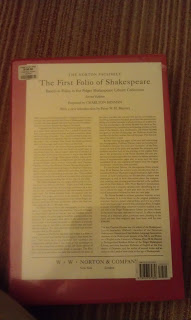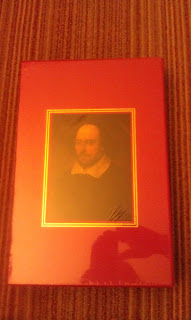If you’ve not seen it yet, you first need to check out this video. It’s from the The Globe’s season opener, Troilus and Cressida performed entirely in New Zealand’s Maori language and opening with a “haka”, something that I can best describe as a “war dance,” popularized by the New Zealand men’s rugby team:
This is already awesome on a number of levels when you go into it thinking “Ok, the Shakespeare people are doing a Shakespeare play in a language other than English.” The idea that there’s going to be 37 (38?) of these, each entirely unique, makes me giddy in anticipation.
Now imagine, if you can, coming at it entirely from the other angle. Imagine you stumbled across this video with no context at all. You start watching, you think, “Ok, this looks interesting….” Then you realize that a story is being told. You try to figure out characters, and plot (* this is only the trailer, of course – pretend for the sake of argument that you could get video of the entire production). How long would it take you to realize “Hey….this story looks familiar! I think this in the Trojan War story! No, wait, is this Shakespeare? Is this Troilus and Cressida???”
That’s where my “parallel universe” comment in the subject comes from. You see something like this and it’s as if the essence of what drove Shakespeare’s stories exists independently somewhere, capable of driving what is fundamentally the same story, in an infinite number of ways. It is the same, and yet it is entirely different. You know what I’m trying to say? None of Shakespeare’s words are going to be found, yet it’s still Shakespeare. It is the very definition of universal.
Enough geekiness, on to some more practical questions. Can somebody with a better knowledge of the play identify some of the characters for us? Can someone (possibly with knowledge of the language) give us an idea of what’s happening during this clip?
Or for an equal amount of fun, can someone with *no* knowledge of the play and *no* knowledge of the language take a shot? That would sort of get back to my opening point. 🙂




